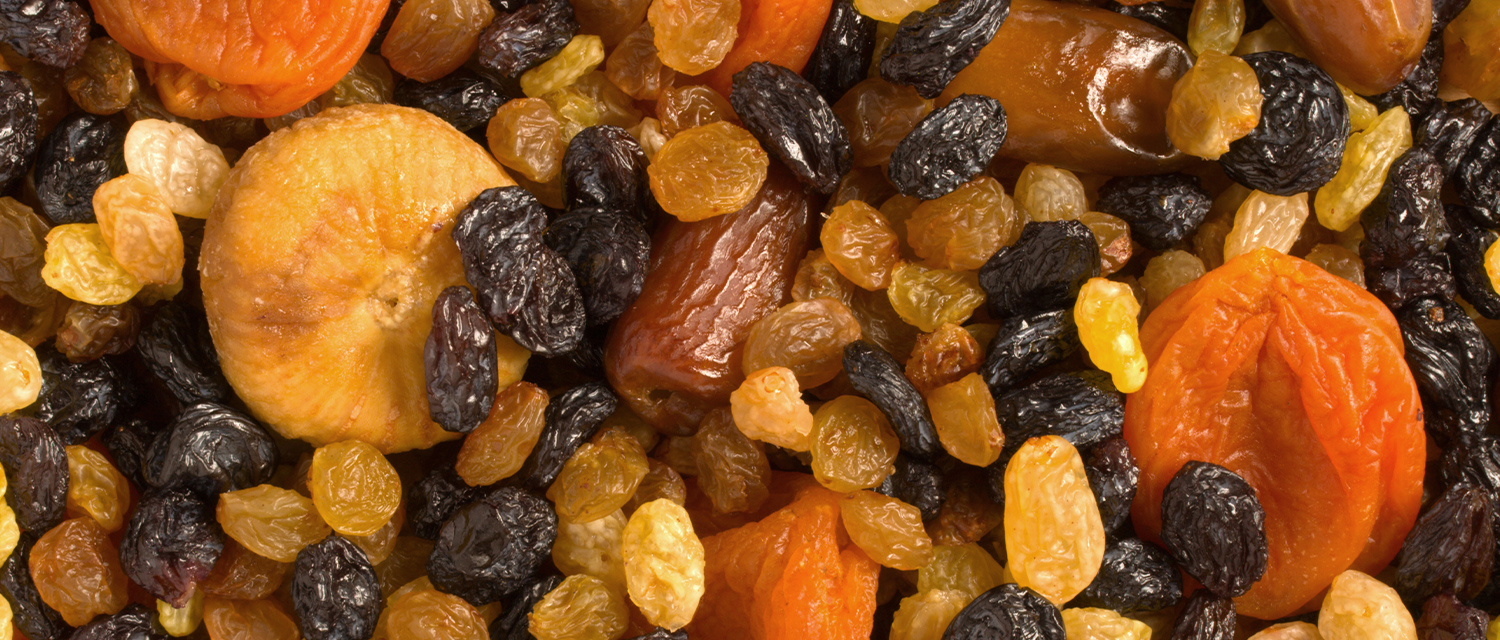
- Back
- / 25 March 2025
Dried Fruit Concentrates vs Fresh Fruit Concentrates: Which is the Best Choice for Food Manufacturers?
In the food industry, ingredient selection significantly impacts a product’s quality, taste, and perception. When it comes to fruit concentrates, food manufacturers often face a crucial question: should they opt for concentrates made from dried fruits or fresh fruits? Let’s explore the key differences between these two approaches and why dried fruit concentrates are emerging as a sustainable food alternative.

1. Production Processes
Dried fruit concentrates: these concentrates are produced from dried fruits such as dates, figs, raisins, prunes, and apricots, which are dehydrated before processing. The dried fruits are then rehydrated and transformed into concentrates. This method extends the shelf life of raw materials, reduces transportation costs due to lower weight, and ensures high-quality concentrates with retained essential characteristics.
Fresh fruit concentrates: fresh fruits are processed shortly after harvest to preserve their organoleptic properties (taste, aroma, colour). However, this approach requires more demanding logistics and preservation methods, increasing overall costs and environmental impact.
2. Organoleptic Quality
Dried fruit-based concentrates: the drying process intensifies and caramelizes the fruit’s natural sugars, resulting in rich, deep flavours. This makes dried fruit concentrates an excellent choice for applications such as pastries, energy bars, sauces, and natural sweeteners.
Fresh fruit-Based concentrates: while they provide a flavour closer to the original fruit, fresh fruit concentrates often have a milder taste compared to those derived from dried fruits. They are commonly used in juices and dairy-based products, where a fresher taste is prioritised.
3. Nutritional Value
Dried fruits: although drying can reduce heat-sensitive vitamins like vitamin C, dried fruits retain concentrated fibres, minerals, and natural sugars. This makes them an ideal base for nutrient-dense concentrates used in sustainable food alternatives.
Fresh fruits: these concentrates maintain a higher proportion of vitamins but require rapid processing to prevent degradation.
4. Costs and Logistics
Dried fruit concentrates: dried fruit-based concentrates offer cost-effective and sustainable solutions. Their long shelf life, reduced storage requirements, and ease of transportation make them a practical choice for food manufacturers. Unlike fresh fruit concentrates, they do not require a strict cold chain, reducing logistical challenges and costs.
Fresh fruit concentrates: due to their perishability, fresh fruit require complex and fast logistics to prevent spoilage, leading to higher costs and supply chain vulnerabilities.
5. Industrial Applications
Dried fruit concentrates: these are preferred in bakery products, confectionery, energy bars, and sauces, where an intense, naturally sweet flavour is beneficial. They serve as effective natural sweeteners while enhancing texture and taste.
Fresh fruit concentrates: these are typically used in beverages, dairy desserts, and products where a fresh, unprocessed flavour is key.
Why Food Manufacturers Are Choosing Dried Fruit Concentrates?
Dried fruit concentrates provide a practical, sustainable, and cost-effective solution for various applications in the food industry. Their benefits include: extended shelf life, lower carbon footprint, and cost savings. Versatility offers flexibility in product formulation across multiple food categories.
At Solufruit, we specialise in processing high-quality dried fruit concentrates tailored to your needs. Whether you require natural sweeteners for confectionery or sustainable food alternatives for large-scale production, our solutions help optimize both product quality and efficiency. Contact us today to learn more about our innovative dried fruit-based concentrates!